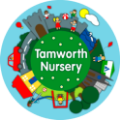Foundation Stage Curriculum
The Early Years Foundation Stage Curriculum
Every child deserves the best possible start in life and the support that enables them to fulfil their potential. Children develop quickly in the early years and a child’s experiences between birth and age five have a major impact on their future life chances. A secure, safe and happy childhood is important in its own right. Good parenting and high quality early learning together provide the foundation children need to make the most of their abilities and talents as they grow up. The Early Years Foundation Stage (EYFS) sets the standards that all early years providers must meet to ensure that children learn and develop well and are kept healthy and safe. It promotes teaching and learning to ensure children’s ‘school readiness’ and gives children the broad range of knowledge and skills that provide the right foundation for good future progress through school and life.’ (Statutory framework for the early years foundation stage. Setting the standards for learning, development and care for children from birth to five 2021, p.5)
There are seven areas of learning and development that must shape educational programmes in early years settings. All areas of learning and development are important and inter-connected. At Two Rivers Early Years we use adaptive teaching approaches to ensure children have an ambitious and personalised approach.
The seven areas of learning and development include:- 3 Prime Areas and 4 Specific Areas. All activities are planned to be appropriate to and to meet the specific stage for the individual child and is based on guidance in the Early Years Foundation Statutory Framework. The stage is determined by the child’s level of development in each area of learning NOT by the child’s chronological age.
Prime
Communication and Language
Speaking and listening skills are our priority and with the help and support of Speech Therapists we aim to give every child the opportunity to communicate effectively using their preferred mode providing access to and supporting with PECs, PODD sheets, Objects of Reference, Makaton and speech. We support children with their home spoken language wherever possible. The early stages of communication begin with reflective, reactive and proactive behaviours and develops to eye contact, vocal sounds, gestures and spoken word. Language comprehension (necessary for both reading and writing) starts from birth. It only develops when adults talk with children about the world around them and the books (stories and non-fiction) they read with them, and enjoy rhymes, poems and songs together. All areas of the curriculum can offer rich, stimulating environments in which to react to these early levels of communication and is embedded throughout the setting.
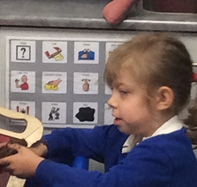
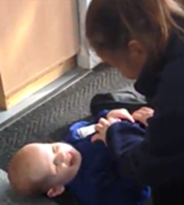
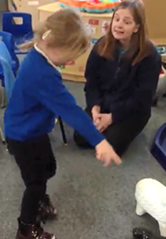
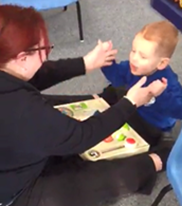
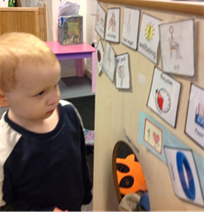
Physical Development
We aim to give the children opportunities to develop physical skills, both indoors and outdoors, using a variety of large and small equipment developing both gross and fine motor skills. We plan bespoke activities to support sensory development and for children with particular developmental issues in this area we follow advice given by Physio and Occupational Therapists.
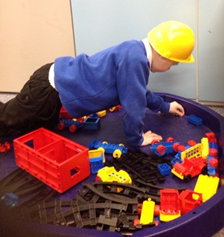
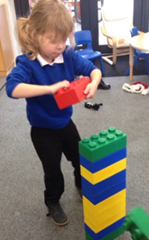
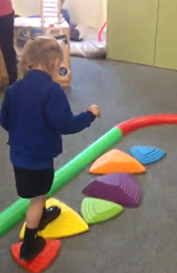
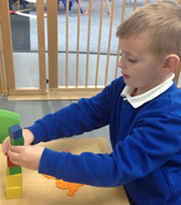
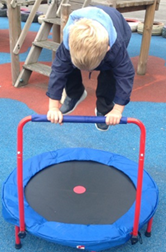
Personal, Social and Emotional Development
We support the child in developing self-help skills (dressing, toileting, feeding) as well as social skills (sharing, turn-taking, respecting each other, managing their feelings…) and helping them to develop a positive sense of themselves. Preparation for adulthood starts from birth. At Two Rivers Early Years, we will support each child to develop their self-worth and self-esteem through independence and personal growth. We work in partnership with home to support each child to maximise independence and life skills; starting with small steps. We will encourage children to learn to do things for themselves to become as independent as possible.
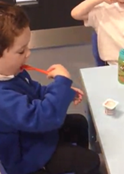
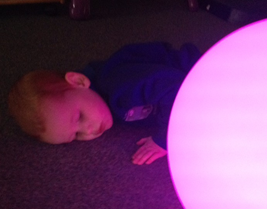
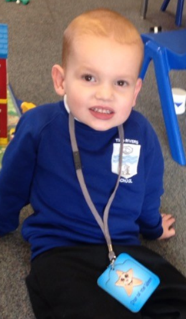
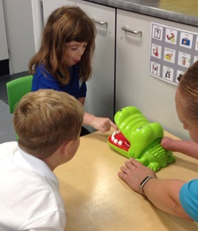
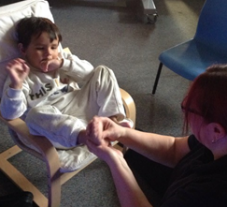
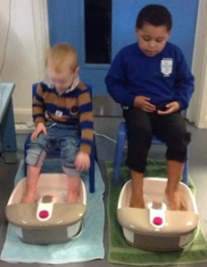
Specific
Literacy
Reading consists of two dimensions: language comprehension and word reading. Language comprehension (necessary for both reading and writing) starts from birth. It only develops when adults talk with children about the world around them and the books (stories and non-fiction) they read with them, and enjoy rhymes, poems and songs together. Skilled word reading, taught later, involves both the speedy working out of the pronunciation of unfamiliar printed words (decoding) and the speedy recognition of familiar printed words.
The children in Early Years have the opportunity to share books and develop their reading, mark making and writing skills. We provide access to resources and use adapted teaching approaches to plan activities to develop early communication sounds (pre-reading), comprehension, word reading and writing.
Phonics
Bug Club is our core scheme for school and all staff have been trained in this, this is the scheme we show fidelity to. For a small number of our learners we use adaptive teaching to support their phase 1 experiences.
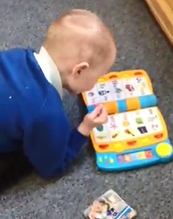
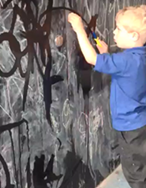
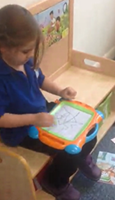
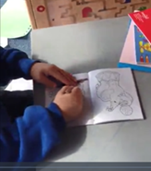
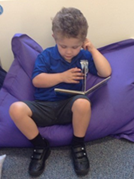
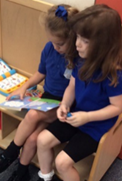
Mathematics
We will provide frequent and varied opportunities to build and apply mathematical understanding. We will provide opportunities for children to develop their spatial reasoning skills across all areas of mathematics including shape, space and measures. It is important that children develop positive attitudes and interests in mathematics, look for patterns and relationships, spot connections, ‘have a go’, talk to adults and peers about what they notice and not be afraid to make mistakes. This provides a foundation for later numeracy skills. By giving shape sorters, grading toys, pattern work, jigsaws and exploratory activities children have the opportunity to explore, at their own pace, concepts required to develop mathematical ideas and problem-solving. Play with sand, water, dough and other 3D materials also introduces mathematical language and concepts. We will use mathematical language within the setting at every opportunity such as counting, singing number rhymes, using resources and during play.
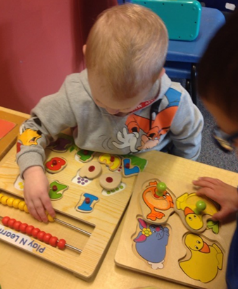
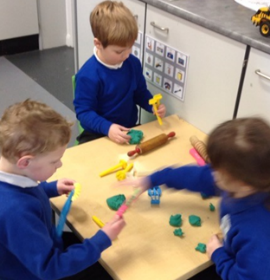
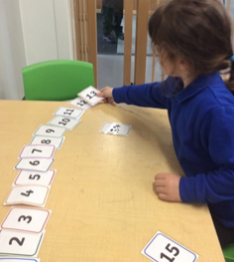
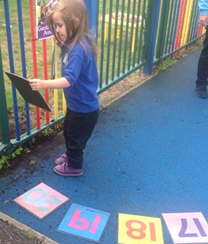
Understanding the World
The children have the opportunity to develop an awareness of the environment, people and features of the world around them, both natural and manmade. We encourage children to explore the natural world around them and talk about relationships important to them. Children have daily access to a wide range of resources which address all aspects of this area of learning. During continuous provision there is always a selection of equipment and resources available for the children to use. In addition to the use of commercially produced materials, opportunities are taken within and around the school environment and through daily routines and incidental events to reinforce Understanding the World, e.g. changes in the weather, insects found outside, visits from the pet therapy dog etc.
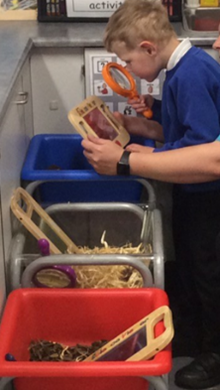
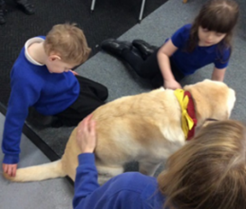
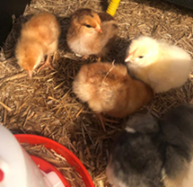
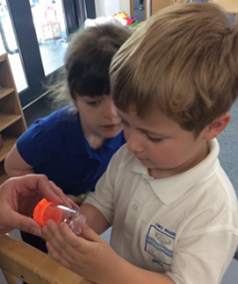

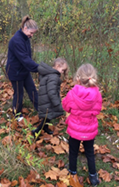
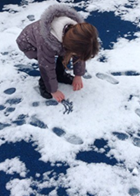
Expressive Arts and Design
A large variety of materials and equipment will be offered through art, music, role-play and the sensory room to stimulate senses and encourage creativity and imagination. Children have daily access to a wide range of resources which address all aspects of Expressive Arts and Design. There are opportunities in all areas of the setting, including outside, to promote creativity through art, music and drama. Expressive Arts and Design is encouraged and used in all seven areas of learning.
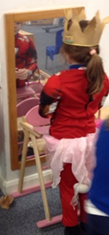
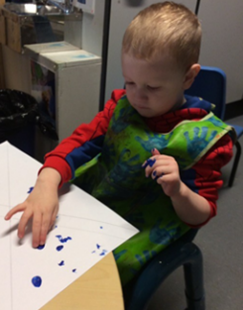
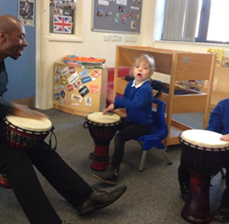
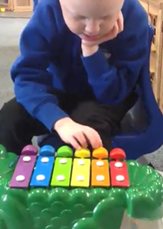
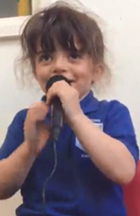
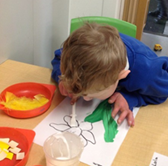
Assessment
Assessment plays an important part in helping parents, carers and practitioners to recognise children’s progress, understand their needs, and to plan activities and support. Ongoing assessment is an integral part of the learning and development process. We use Tapestry as our assessment tool and use the Cherry Garden bespoke framework, which is designed to support children with special needs.
The Developmental Matters Document (2021), which supports The Statutory Framework for the Early Years Foundation Stage, sets out the pathways of children’s development in broad ages and stages: 0-3, 3-4, and reception.
Sometimes it can be very difficult to show our children’s progress within these broad ages and stages as the steps they make are often tiny. We want to celebrate each and every step our children make and the Cherry Garden framework supports this by breaking the stages of development into small steps called branches.
Your progress report shows where your child is in line with the New Developmental Matters age bands, and which Cherry Garden branch they are on in all the curriculum areas. The progress is recorded termly in age bands and percentages and reported to parents so you see the progress made over the academic year.
Reception Baseline Assessments (RBAs) are a statutory requirement by the Government, for all Reception aged children which needs to take place within the first six weeks after they have entered school. The RBAs will be an activity-based assessment of pupils’ starting points in language, communication and literacy and mathematics. Pupils will use practical resources to complete these tasks and teachers will record the results on a laptop, computer or tablet.
We are happy to discuss your child’s progress at any time.

